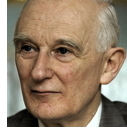The Dearing Review (1994)
The National Curriculum and its Assessment: Final Report
London: School Curriculum and Assessment Authority 1994
© Crown copyright material is reproduced with the permission of the Controller of HMSO and the Queen's Printer for Scotland.
Background notes
Ron Dearing
 Sir Ron Dearing (1930-2009) (pictured) joined the civil service at the age of 16 and rose to various senior positions. He went on to become Chairman and Chief Executive of the Post Office and Chancellor of the University of Nottingham. Sir Ron Dearing (1930-2009) (pictured) joined the civil service at the age of 16 and rose to various senior positions. He went on to become Chairman and Chief Executive of the Post Office and Chancellor of the University of Nottingham.
He chaired committees which produced two other reports on education:
1996 Review of Qualifications for 16-19 year olds
1997 Higher Education in the learning society.
The 1994 review
As the National Curriculum and its assessment arrangements were being implemented it became clear that the whole edifice was hopelessly overburdened and complicated.
In April 1993 Secretary of State for Education John Patten asked Ron Dearing, Chair of the School Curriculum and Assessment Authority, to investigate possibilities for reducing the burden on schools.
This is his final report, dated 20 December 1993 but published in 1994.
Summary of the report's main recommendations
- urgent action is needed to reduce the statutorily required content of programmes of study and to make the National Curriculum less prescriptive and less complex;
- at Key Stages 1 to 3, twenty per cent of teaching time should be for use at the discretion of the school;
- the first priority for discretionary time must be to support work in the basics of literacy, oracy and numeracy;
- schools should be accountable to their governing bodies for using the time released effectively;
- the number of attainment targets and statements of attainment should be reduced;
- the review should be undertaken by the School Curriculum and Assessment Authority (SCAA);
- no further major changes should be made to the National Curriculum Orders for five years following the review;
- at Key Stage 4, schools should have greater opportunity to offer a curriculum which meets the distinctive talents and individual aspirations of their students;
- vocational qualifications should be developed for use at Key Stage 4 as part of a wider curriculum;
- the requirement for National Curriculum short courses to be combined with another short course for accreditation purposes should be abandoned;
- the balance between the content of National Curriculum subjects and GCSE syllabuses should be reviewed;
- the removal of history and geography from the mandatory subjects at Key Stage 4 should be implemented immediately;
- the National Curriculum should be available to pupils with special educational needs and special needs teachers should be involved in its revision;
- the ten-level scale should be retained but improved and should finish at the end of Key Stage 3;
- the curriculum Orders should be revised simultaneously;
- national tests in the core subjects should be simplified without sacrificing validity and reliability;
- systems of moderated teacher assessment must underpin standards but must not be bureaucratic or require excessive amounts of teacher time;
- for Key Stage 3, statutory teacher assessment of non-core subjects should be introduced or reintroduced;
- the Group set up by SCAA to advise on the value-added approach to the measurement of school performance should report by June 1994.
The report online
The Dearing Review was published as an A4-size paperback. The complete text is presented here in a single web page.
The above notes were prepared by Derek Gillard and uploaded on 18 April 2012.
 
| 




